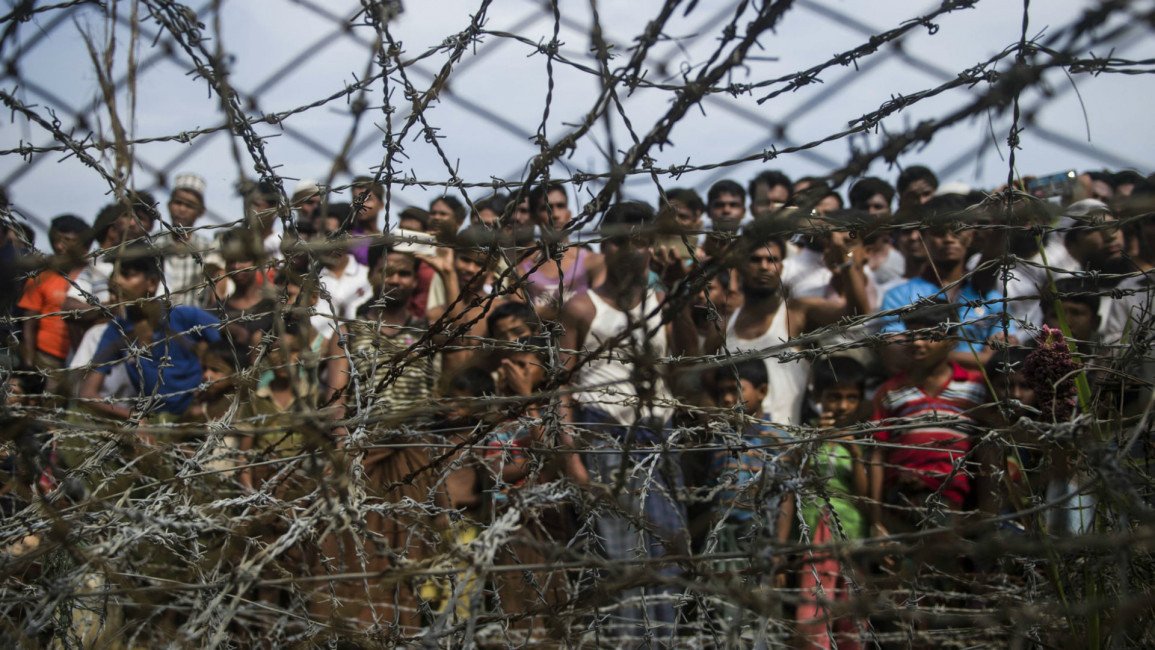UN slams Myanmar military generals, calls for 'genocide' prosecution
United Nations investigators called on Monday for an international probe and prosecution of senior figures in Myanmar's army for genocide against the country's Rohingya minority.
"Myanmar's top military generals, including Commander-in-Chief Senior-General Min Aung Hlaing, must be investigated and prosecuted for genocide in the north of Rakhine State, as well as for crimes against humanity and war crimes in Rakhine, Kachin and Shan States," a UN-backed fact-finding mission said.
Some 700,000 Rohingya Muslims have fled over the border to Bangladesh, since August, to escape a bloody military crackdown that has left a trail of torched villages in its wake as refugees allege murder and rape by Myanmar's armed forces.
Myanmar's security forces have been accused of rape, killing, torture and the burning of Rohingya homes. The UN and the US have described the army crackdown as "ethnic cleansing".
The government has denied the accusations, instead blaming the violence on Rohingya insurgents alleging they attacked security posts triggering reprisals. It is the latest exodus of the population that has long been denied citizenship and other basic rights.
But in Monday's report, the UN mission insisted the army tactics had been "consistently and grossly disproportionate to actual security threats."
The mission, which was created by the UN Human Rights Council in March 2017, concluded in a report that "there is sufficient information to warrant the investigation and prosecution of senior officials in the Tatmadaw (Myanmar army) chain of command".
"The crimes in Rakhine State, and the manner in which they were perpetrated, are similar in nature, gravity and scope to those that have allowed genocidal intent to be established in other contexts," the report said.
The investigators named Min Aung Hlaing and five other top military commanders, adding that a longer list of names could be shared with "any competent and credible body pursuing accountability in line with international norms and standards".
Civilian leader Aung San Suu Kyi was also criticised, with the report finding that she had "not used her de facto position as head of government, nor her moral authority, to stem or prevent the unfolding events".
While acknowledging that she and other civilian authorities had little influence on military actions, it said that they "through their acts and omissions... have contributed to the commission of atrocity crimes".
The investigators called on the UN Security Council to refer the Myanmar situation to the International Criminal Court, or for an ad-hoc international criminal tribunal to be created.
They also recommended an arms embargo and "targeted individual sanctions against those who appear to be most responsible".



